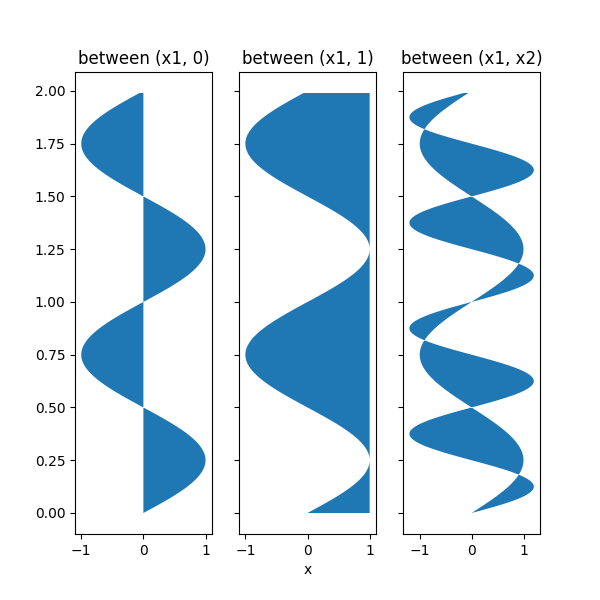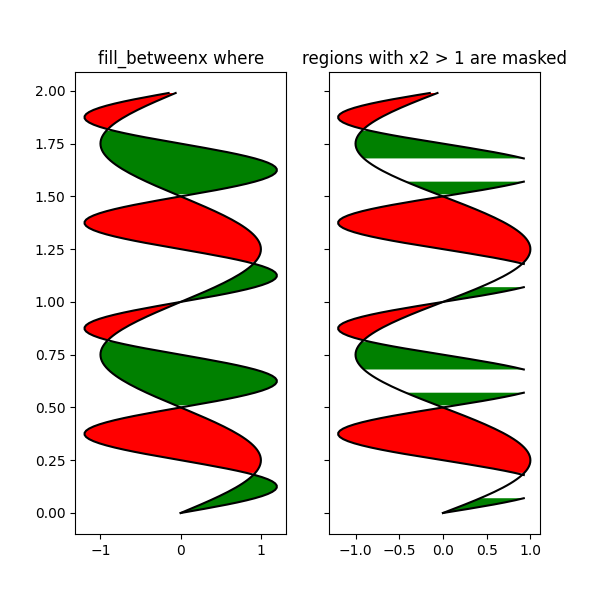注意
跳转到底部以下载完整示例代码。
填充两条垂直线之间的区域#
使用 fill_betweenx 在两条曲线之间沿水平方向着色。
import matplotlib.pyplot as plt
import numpy as np
y = np.arange(0.0, 2, 0.01)
x1 = np.sin(2 * np.pi * y)
x2 = 1.2 * np.sin(4 * np.pi * y)
fig, [ax1, ax2, ax3] = plt.subplots(1, 3, sharey=True, figsize=(6, 6))
ax1.fill_betweenx(y, 0, x1)
ax1.set_title('between (x1, 0)')
ax2.fill_betweenx(y, x1, 1)
ax2.set_title('between (x1, 1)')
ax2.set_xlabel('x')
ax3.fill_betweenx(y, x1, x2)
ax3.set_title('between (x1, x2)')

现在填充满足逻辑条件的 x1 和 x2 之间。请注意,这与调用
因为在多个连续区域上存在边缘效应。
fig, [ax, ax1] = plt.subplots(1, 2, sharey=True, figsize=(6, 6))
ax.plot(x1, y, x2, y, color='black')
ax.fill_betweenx(y, x1, x2, where=x2 >= x1, facecolor='green')
ax.fill_betweenx(y, x1, x2, where=x2 <= x1, facecolor='red')
ax.set_title('fill_betweenx where')
# Test support for masked arrays.
x2 = np.ma.masked_greater(x2, 1.0)
ax1.plot(x1, y, x2, y, color='black')
ax1.fill_betweenx(y, x1, x2, where=x2 >= x1, facecolor='green')
ax1.fill_betweenx(y, x1, x2, where=x2 <= x1, facecolor='red')
ax1.set_title('regions with x2 > 1 are masked')

此示例说明了一个问题;由于数据网格化,在交叉点处存在不必要的未填充三角形。一个暴力解决方案是在绘图前将所有数组插值到非常精细的网格上。
plt.show()
脚本总运行时间: (0 分 2.096 秒)